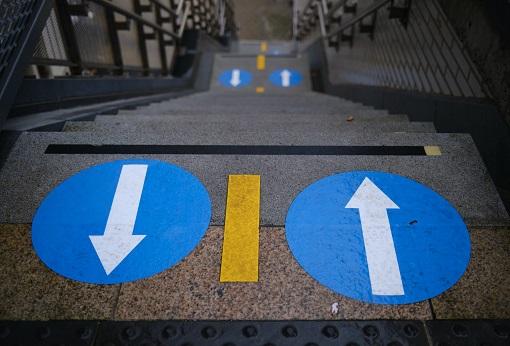
 |
Blog written by Clare Daley, Community Outreach Coordinator at Voscur |
The local response from new and existing community groups and volunteers across Bristol to the coronavirus pandemic and resulting lockdowns was both incredible and inspiring.
COVID-19 mutual aid Facebook groups and WhatsApp groups quickly sprang up for every Bristol postcode, and many streets and thousands of volunteers came forward to provide support to those isolated at home.
These new volunteer led groups rapidly linked up support requests to offers of help locally and in many areas existing community organisations, centres and partnerships also stepped in to provide coordination and to link with city wide and UK initiatives. We then saw this grassroots response consolidated into 23 new COVID-19 community hubs in liaison with Bristol City Council, covering the whole of Bristol and linking to the central We are Bristol helpline referrals and Can Do Bristol volunteers (where coronavirus-related volunteer roles are listed).
Our experience reflects what has been found nationally that effective local systems emerged in the crisis, existing social infrastructure was vital to the response, and community organisations acted as “cogs of connection” and adapted at pace (We Were Built for This report by Locality, 2020) i.e. ‘Neighbourhoods have become … active social webs, linked by new connections and reciprocal dependencies’ (Communities versus Coronavirus – The Rise of Mutual Aid report by NLGN, 2020).
This crisis has acted as a catalyst for community action across Bristol, with people coming forward who have not volunteered before and people being reached in their homes who have not previously been supported. We have had our eyes opened more to the complexity and layers of challenges faced in our city such as poor mental health, food poverty, and digital exclusion: issues exacerbated by lockdown and requiring long-term joined-up responses. We now have an opportunity to build on this new activity and keep people involved in supporting their communities.
The current situation for COVID-19 support groups is changing as restrictions change, but many local groups are keen to continue their work for community action, keeping their best initiatives going, retaining volunteers and preparing for a future coronavirus wave.
Groups have indicated that support would be useful in becoming more sustainable as key members return to work, in recruiting more volunteers, members and possibly staff, and in developing policies and future plans. In areas which previously lacked community networks, COVID-19 response volunteers are keen to bring local people together, share their learning and skills, and develop new groups and projects.
Voscur developed new online resources and training specifically for groups providing COVID-19 volunteer support and these were found beneficial by both grassroots groups and organisations involved in community hubs.
We also contacted new grassroots groups and provided one to one information and advice on funding, constituting and promoting their work as required. Some informal networking and information sharing took place between COVID-19 support groups in Bristol during lockdown and Voscur plans to build on this by facilitating future peer support and shared learning.
If your organisation or mutual aid group deals with coronavirus response, please get involved in our new Problem-Solving Network (next date: Tuesday 15 December) - an informal online peer support session where you can talk about problems, ask questions and share advice and insight with like-minded people.